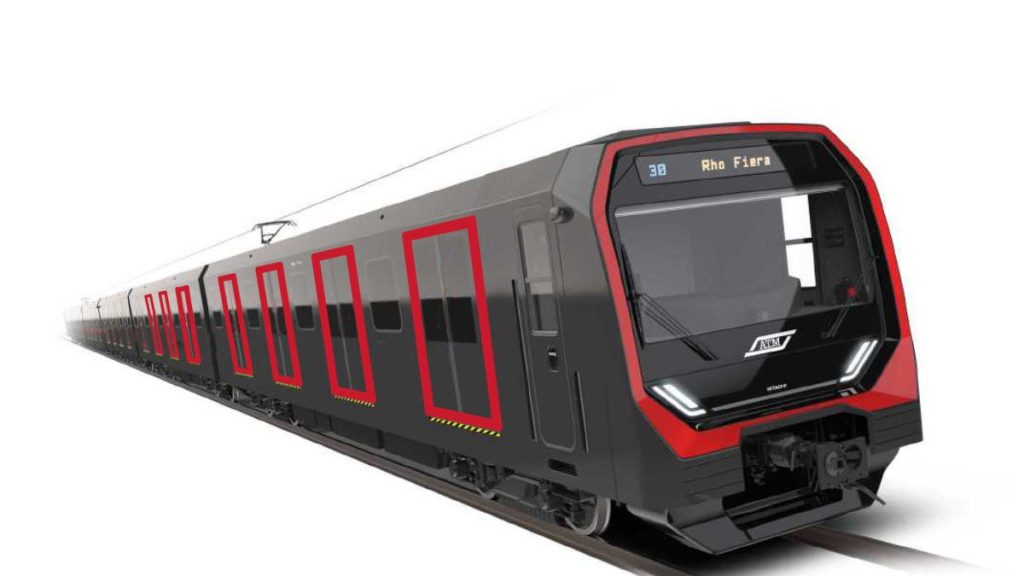 Milan public transport company ATM awarded Hitachi Rail a EUR 368 million framework agreement for the manufacturing of trains for Milan metro. The contract covers the supply of 46 six-car trainsets with the first vehicle scheduled to enter services in spring 2024. The first part of this agreement has already been committed for the delivery of 21 trains destined for line M1, worth EUR 168 million.
Milan public transport company ATM awarded Hitachi Rail a EUR 368 million framework agreement for the manufacturing of trains for Milan metro. The contract covers the supply of 46 six-car trainsets with the first vehicle scheduled to enter services in spring 2024. The first part of this agreement has already been committed for the delivery of 21 trains destined for line M1, worth EUR 168 million.
The state-of-the-art trains will have a new, fully accessible, design with an uninterrupted view from the front to the end of the service and a surveillance system providing real time video to the control room to improve security onboard. The train’s lower noise levels will also help provide a comfortable passenger experience.
The 106.5 m-long aluminium trains will have the ability to reach a maximum speed of 90 km/h. The trains will also be equipped with integral air conditioning and the external sides have been designed to be especially resistant to vandalism. In line with Hitachi Rail and ATM’s commitments to decarbonisation and delivering sustainable mobility, the trains have also been designed to meet high levels of recyclability for when they reach the end of their lives.
The new trains will be manufactured in the Italian Hitachi Rail plants in Naples and Reggio Calabria.
The new trains will help further modernisation of the public transport network of the Lombardy capital city, offering passengers more modern, accessible and comfortable trains.
Milan metro train acquisition project is part of ATM’s massive investment plan to deliver an increasingly sustainable and technologically advanced public transport system.
In 2021, AMT has approved the 2021-2025 development strategy to face the significant ridership loses during covid and to adapt to future mobility by creating new business models that focus on expanding the business perimeter and on innovative services. The authority intends to create a smart an integrated mobility system through the creation of a multi-service platform, to expand and diversify the range of services as well as to optimise operating costs and purchasing processes. The strategy highlights the importance of environmental sustainability through transiting to a zero-impact fleet by 2030. Electric and hydrogen vehicles, new deports and the modernisation of the existing facilities will have a great impact to reduce CO2 emissions by 74.000 tonnes per year, according to ATM’s plan.
Share on:



